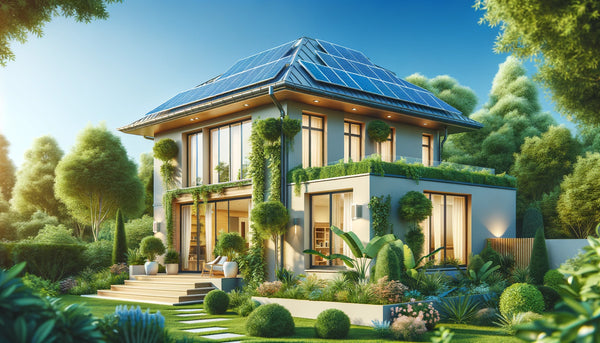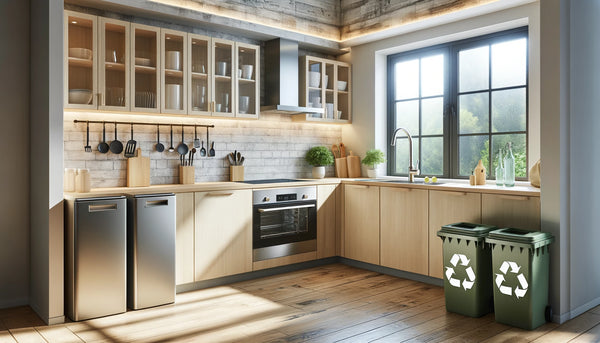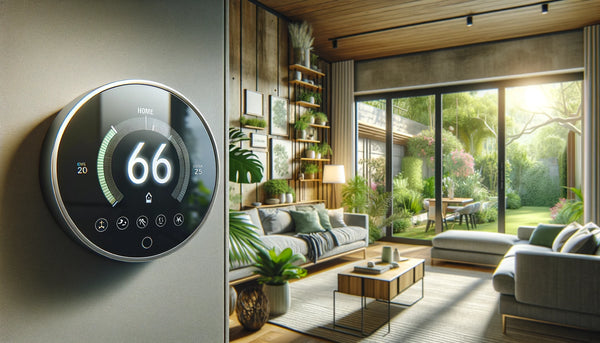- Green Glow
- Posts
- 🌱 10 Simple Ways to Boost Energy Efficiency in Your Home 🔋💡🏡
🌱 10 Simple Ways to Boost Energy Efficiency in Your Home 🔋💡🏡
Discover ten simple yet effective ways to boost energy efficiency in your home, from upgrading lighting to optimizing HVAC systems. Learn how to save money on utility bills while reducing your carbon footprint with these actionable tips.
In today's world, where energy conservation is becoming increasingly important, finding ways to boost energy efficiency in your home is not only beneficial for the environment but also for your wallet. From reducing utility bills to minimizing your carbon footprint, implementing energy-efficient practices can make a significant difference. Here are ten simple ways to make your home more energy-efficient:
Table of Contents

1. Upgrade to LED Lighting
One of the easiest ways to enhance energy efficiency in your home is by replacing traditional incandescent bulbs with LED lighting. LED bulbs use significantly less energy and last much longer than incandescent bulbs, making them a cost-effective and eco-friendly lighting option.
2. Seal Air Leaks
Identifying and sealing air leaks around windows, doors, and other openings in your home can prevent conditioned air from escaping and reduce the workload on your heating and cooling systems. Use weather stripping, caulking, or foam insulation to seal gaps and cracks, thereby improving energy efficiency.
3. Install a Programmable Thermostat
A programmable thermostat allows you to set temperature schedules based on your daily routines, ensuring that your heating and cooling systems operate more efficiently. By adjusting temperatures according to your needs, you can save energy and reduce utility costs without sacrificing comfort.
4. Improve Insulation
Proper insulation is crucial for maintaining a comfortable indoor temperature and reducing energy consumption. Enhance insulation in your attic, walls, and floors to minimize heat transfer, keep your home warmer in winter and cooler in summer, and lower your heating and cooling bills.
5. Maintain HVAC Systems
Regular maintenance of heating, ventilation, and air conditioning (HVAC) systems is essential for optimal performance and energy efficiency. Change air filters regularly, schedule professional inspections and tune-ups, and ensure that ductwork is properly sealed and insulated to maximize energy savings.

6. Upgrade Appliances
Older appliances tend to be less energy-efficient than newer models. Consider upgrading to Energy Star certified appliances, such as refrigerators, dishwashers, washing machines, and water heaters, which are designed to consume less energy while delivering high performance.
7. Use Energy-Efficient Window Treatments
Installing energy-efficient window treatments, such as blinds, shades, or curtains with thermal linings, can help reduce heat gain in summer and heat loss in winter. By controlling sunlight and airflow, these treatments can improve indoor comfort and decrease reliance on heating and cooling systems.
8. Optimize Water Usage
Reducing water consumption not only conserves a precious resource but also saves energy. Install low-flow faucets and showerheads, fix leaks promptly, and consider upgrading to energy-efficient water heaters to minimize energy usage and lower utility bills.
9. Harness Solar Energy
Harnessing solar energy through rooftop solar panels or solar water heaters can significantly reduce reliance on traditional energy sources and lower utility expenses. Depending on your location and property, investing in solar technology can provide long-term financial and environmental benefits.
10. Practice Energy-Conscious Habits
Simple lifestyle changes can contribute to improved energy efficiency in your home. Turn off lights and unplug electronics when not in use, use energy-saving settings on appliances, hang clothes to dry instead of using a dryer, and limit unnecessary heating and cooling by adjusting thermostat settings.

Conclusion
Enhancing energy efficiency in your home is not as daunting as it may seem. By implementing these ten simple strategies, you can reduce energy consumption, cut utility costs, and create a more sustainable living environment for yourself and future generations. Embracing energy-efficient practices not only benefits your household but also contributes to a greener and healthier planet.
FAQs
Why is energy efficiency important for my home?
Energy efficiency helps reduce utility bills, minimizes environmental impact, and enhances indoor comfort and air quality.
How can I improve insulation in my home?
You can enhance insulation by adding materials to attics, walls, and floors, sealing air leaks, and ensuring proper ventilation.
Are LED bulbs really more energy-efficient than traditional incandescent bulbs?
Yes, LED bulbs use less energy, last longer, and produce less heat compared to incandescent bulbs, making them a cost-effective lighting option.
How can I make my HVAC system more energy-efficient?
Regular maintenance, such as changing air filters and sealing ductwork, can improve HVAC efficiency, along with upgrading to energy-efficient models and using programmable thermostats.
Is investing in solar energy worth it for my home?
Depending on your location and property, investing in solar panels or solar water heaters can provide long-term financial savings and reduce reliance on traditional energy sources.
You May Also Like
🌱 Small-Scale Energy Revolution: Vertical Axis Wind Turbines for Homes 🏡⚡
🌱 The Future of Home Energy: Innovative Technologies and Trends for Efficiency 🌍🏠🔋
🌱 From Sunlight to Savings: Maximizing Efficiency with Solar Panels ☀️💰
🌱 Sun-Powered Savings: How Solar Panels and Efficiency Measures Can Transform Your Home 🌞💡🏡
🌱 Tapping into Nature's Resources: The Promise of Hydropower 🌊💧🔋